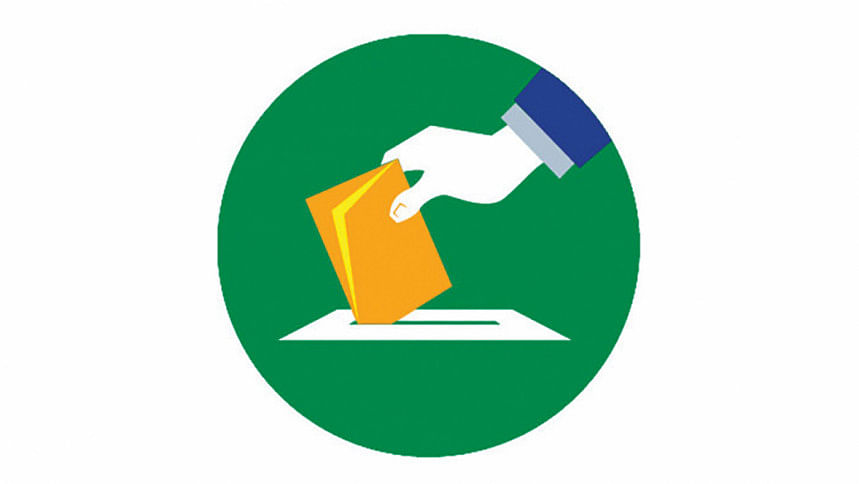Signatures they got, not votes

Despite amassing the required one percent voter signatures to contest the national polls as an independent candidate, around 36 percent of independents couldn't even secure one percent vote in the January 7 election.
This means people who signed up as their supporters didn't even bother to vote for them on election day.
Apart from party candidates, former lawmakers who ran as independents do not require the one percent voter signatures.
A total of 159 out of 437 independents received less than one percent of the votes, with five of them securing fewer than 100 votes each.
For example, in Nilphamari-3, which has a total of 2,75,341 voters, five independent candidates entered the fray, each submitting signatures from 2,753 supporters required for candidacy.
However, the election results revealed that Abu Sayeed Shamim and Hukum Ali Khan, two independents, received only 38 and 94 votes, respectively.
Shamim's 38 votes marked the lowest among all 1,969 candidates nationwide.
In Dhaka-14, where independent candidates required 4,182 voter signatures each, four out of five failed to secure even one percent of the votes, with Kazi Faridul Haque, ZI Russel, Mohammad Mohibullah, and Mohammad Emrul Kayes Khan receiving 1,584, 546, 666, and 119 votes, respectively,
Contacted, Emrul said, "When a voter signs for a candidate, it opens them up to intimidation and other underhanded tactics. When other contestants get to know about a voter's allegiance, they often attempt to sway the voter in various ways. Consequently, supporters who initially pledged their support might vote for some other candidate."
"Many do not go to cast vote in fear of intimidation," he added.
In 2008, the Representation of the People Order, 1972 was amended by adding section 12(3A) -- "In the case of an independent candidate, every nomination paper shall have a list of signatures of one percent electors of the concerned constituency."
The EC introduced the provision to prevent "so many independent candidates" from running, and the opportunity to sway the results in favour of other contestants.
An EC official said without the requirement of one percent voter support, the number of independent candidates would increase, which poses several challenges such as fitting their symbols on a single ballot paper sheet.
The 2001 general election saw 486 independent candidates, but the introduction of the provision before the 2008 national polls led to a significant decrease, with only 148 independents in 2008, 114 in 2014, and 128 in 2018.
This year saw a departure from the norm, with 437 independent candidates, attributed to the ruling Awami League's decision to permit party members to run as independents to boost voter turnout, according to election experts.
Former Election Commissioner Brig Gen (retd) Sakhawat Hussain said their commission introduced the rule to curb the rising number of independent candidates, as some were observed selling their agents in support of other party candidates.
He emphasised the necessity of such rules for maintaining discipline among candidates.
Regarding 36 percent of independents bagging less than one percent vote, he said, "Collecting one percent voters' signature doesn't guarantee one percent votes, as they can influence voters to sign for them by providing money or through intimidation."
However, former EC Rafiqul Islam said the provision of collecting one percent of voters' signatures contrasts with the constitution.
"The constitution said a Bangladeshi resident who is 25 years old, can participate in the election. But with this provision, a barrier has been created," he said.
He also said this creates scope for a powerful candidate to know about the supporters of their rivals, which can be problematic in many ways.
"We (Nurul Huda commission) discussed eliminating the provision, but that did not happen because it became a ritual," he added.


 For all latest news, follow The Daily Star's Google News channel.
For all latest news, follow The Daily Star's Google News channel. 



Comments